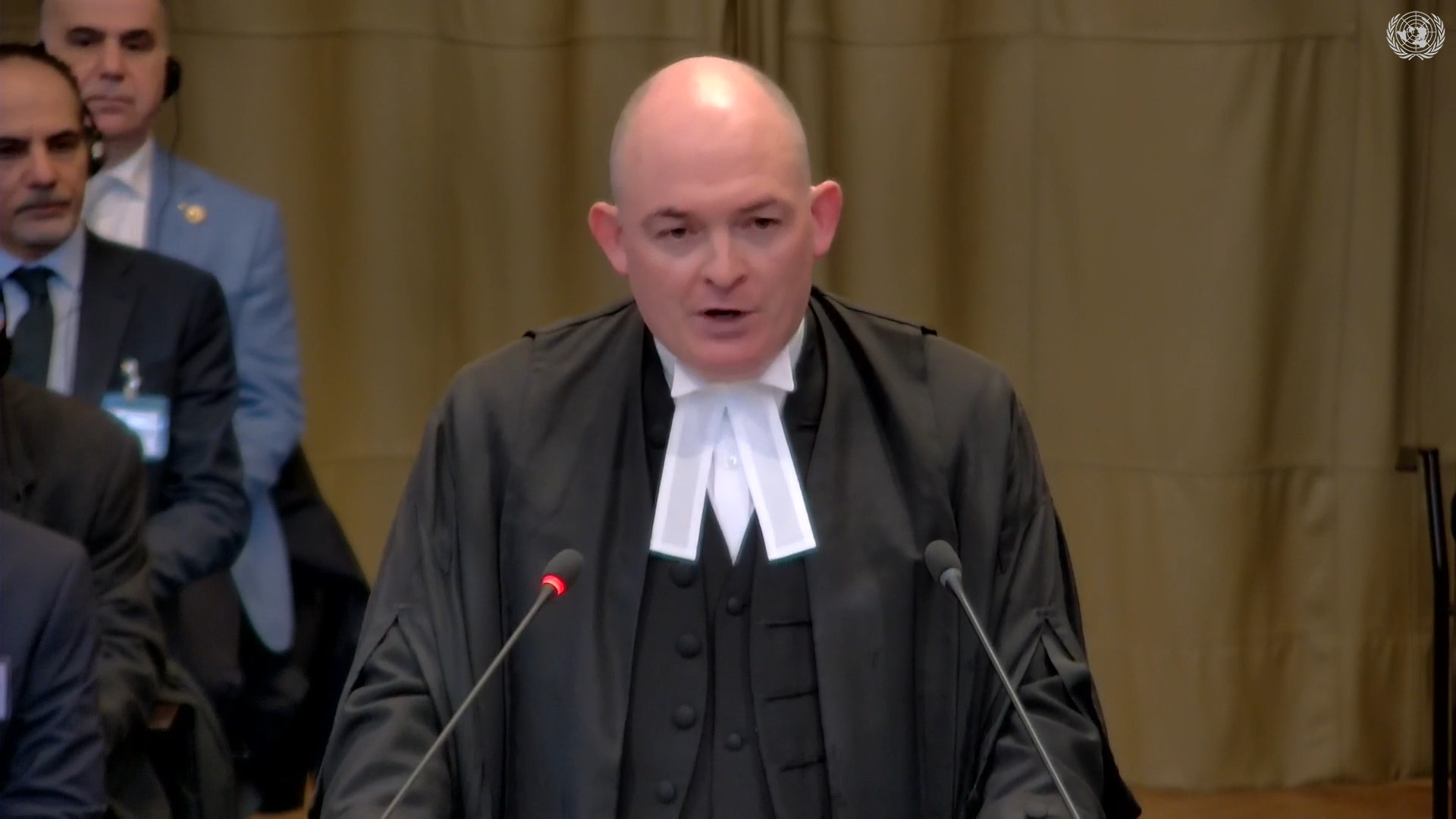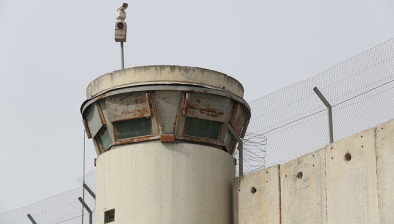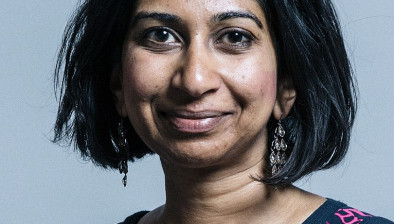Ireland’s Attorney General: Israeli settlements part of illegal annexation of Palestinian territory

Pictured: Attorney General Rossa Fanning SC speaking in the International Court of Justice (ICJ) this morning.
Israel is gradually annexing the West Bank in violation of the Palestinian people’s right to self-determination and other fundamental principles of international law, Ireland’s Attorney General Rossa Fanning SC has told the International Court of Justice (ICJ).
Mr Fanning made an oral submission on behalf of Ireland in the Peace Palace in The Hague this morning, where the top UN court is conducting hearings on Israel’s occupation of the West Bank and the Gaza Strip.
The proceedings follow a 2022 request from the UN General Assembly for an advisory opinion on the legal consequences of Israel’s occupation of the occupied Palestinian territories (OPT) since 1967.
More than 50 countries, the African Union, the Arab League and the Organisation of Islamic Cooperation are participating in the proceedings.
While the case predates the ongoing Israel-Gaza war, and is entirely separate from the proceedings subsequently brought by South Africa against Israel under the Genocide Convention, Mr Fanning began his statement by condemning the Hamas attacks on October 7th and Israel’s military response.
“This is a tragic conflict between two peoples, and any solution — for it to endure — requires each to respect the equal rights of the other,” he said.
Addressing questions of jurisdiction, Mr Fanning said an advisory opinion from the ICJ and an “authoritative clarification of the important legal issues raised would provide the essential foundation upon which to build a lasting, comprehensive and just resolution of the Israeli-Palestinian conflict”.
Moving on to the occupation, he said the “defining featuring of Israel’s occupation of Palestinian territory in the West Bank, including East Jerusalem, has been continuous settlement activity” and trying to “take and exercise control for non-military purposes over as much land in the OPT as possible”.
Highlighting that there are now over 700,000 Israeli settlers in the West Bank, the Attorney General said Israel had “fundamentally altered the demographics of the West Bank” and in doing so had violated Article 49(6) of the Fourth Geneva Convention.
“The evident permanence of the settlements can only be explained, in Ireland’s assessment, by Israel’s intention of annexing the land upon which they are built,” Mr Fanning said.
“In our view, the development and expansion of settlements clearly demonstrate that Israel is — and has been — engaged in a process of annexation of that land for decades. The absence of any declaration of annexation or formal de jure act of incorporation over most of the West Bank is immaterial.”
He said that “whether de facto, de jure, or both, this process of annexation is in clear breach of the prohibition in international law against the acquisition of territory by threat or use of force, a fundamental principle of international law”.
Escalating settlement activity “has increasingly fragmented Palestinian presence upon — and restricted Palestinian use of — the land and natural resources of the Palestinian people”, and “threatens the viability of a future Palestinian state”, he added.
“The nature, scale and duration of settlement activity is such that its purpose can only be to permanently obstruct the exercise of the Palestinian people’s right to self-determination,” Mr Fanning said.
Ireland has “with regret concluded that, by its prolonged occupation of Palestinian territory and the settlement activities it has conducted there for more than half a century, Israel has committed serious breaches of a number of peremptory norms of general international law, and the corresponding erga omnes obligations to which they give rise,” he said.
As a result, he argued, there is an obligation on other states not to recognise the situation as lawful and not to aid it through, for example, trade with illegal settlements.
Mr Fanning concluded by reasserting Ireland’s support for a two-state solution based on the 1967 borders with Jerusalem as a shared capital. He said recent statements by Israeli PM Netanyahu which openly rejected the two-state solution caused “widespread international dismay”.
“That solution must be built on a foundation of respect for international law, but especially, the right to self-determination,” he said.
The ICJ will continue hearing submissions every day until Monday 26 February.







